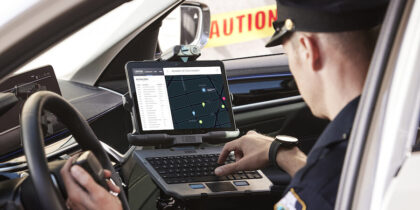According to Gallup research, there are currently 73 million millennials in the U.S. alone. And by 2025, they’ll make up some three-quarters of the workforce, a Deloitte University report estimated. Members of this generation are digital natives who grew up with technology all around them. For many, the lines between personal and business information are increasingly blurred, making it harder to achieve a work-life balance.
Balancing Flexibility With Security
Because of their comfort with using technology, millennials are more likely than older generations to engage in risky online behavior. According to a recent Forcepoint report, 70 percent of millennials admit to using unprotected Wi-Fi connections, while 32 percent download unauthorized apps and 42 percent use the same password across all apps. As more millennials enter the workforce, agencies must have technology that offers both security and the flexibility required to provide this generation with the work-life balance they crave. In government, these efforts are compounded by bureaucracy and long purchasing cycles.
In 2012, the federal government unveiled its CIO Digital Strategy, which was intended to provide a framework for agencies to collaborate and effectively harness the internet and manage mobility. Part of this strategy included encouraging bring-your-own-device (BYOD) programs, but this hasn’t taken off in the government sector the way it has in the commercial arena.
Mobile security in the workforce is crucial.
Download this white paper to learn why Samsung devices are some of the most secure available. Download Now
Government Agencies Embrace CYOD
Instead of BYOD, government organizations are adopting choose-your-own-device (CYOD) programs, in which agencies pay for the devices and plans but allow employees to choose the device they’d like to use. Usually, this is a choice between one or two devices per manufacturer.
For many agencies, Samsung Knox is central to their CYOD strategy, as it provides them with the defense-grade security platform they need — in a user-friendly way. Security is built in to the hardware layer of the device, and extends through the operating system right up to the application layer. All security certificates are stored in a secure vault on the device. Users aren’t aware of the technical aspects running in the background, but if the device is tampered with it will block access, preventing a breach of agency data. This enables millennials to work on the devices they’re most comfortable with, while closing the gaps in their security practices.
The Knox platform also ties in closely with most of the leading MDM solutions and can be complemented with Knox Workspace, a powerful data separation container. With Knox Workspace, agencies can create a secure container for all work applications and data, while allowing users with the ability to access apps they desire outside of the container. With the right mobile technology stack, government organizations can embrace innovation while ensuring that apps are used securely.
Additionally, the Knox Customization solution provides agencies the ability to custom configure a fleet of mobile devices for their specific needs, such as providing the National Parks Department with the apps and the capabilities it requires to greet park guests, or customizing devices for tactical military purposes.
Among government agencies, around 95 percent of Samsung devices are agency-liable under CYOD programs, as opposed to personally liable, as is the case in BYOD programs. Some civilian agencies are looking to expand their BYOD programs in order to increase efficiency and provide users with even more choices. However, for departments that have highly confidential data, BYOD will never be an option due to strict compliance and reporting regulations. Ultimately, most organizations will likely have a mix of standard-issued devices that are locked down, and a BYOD strategy for unclassified use cases.
Keeping Millennials in the Workplace
In the future, security policies will evolve to empower millennials with greater optimization, and enable government agencies to become more accessible. Agencies must balance the need to retain millennials — who exhibit less loyalty to employers than previous generations — with the need to increase efficiencies, reduce costs and become more transparent. Security platforms such as Samsung Knox can help agencies comfortably deploy devices and help millennials in the workplace achieve a satisfying work-life balance.
2016 has been characterized by personal attacks such as ransomware, a trend that CIO predicts will only get worse in 2017. To avert such security threats, more and more agencies are offering secure CYOD programs that cater to the needs of the millennial workforce while overcoming the hurdles of budget and security.
Recent research shows that millennials are leading the charge when it comes to mobile productivity gains. Learn more about the benefits of workplace mobility here.








